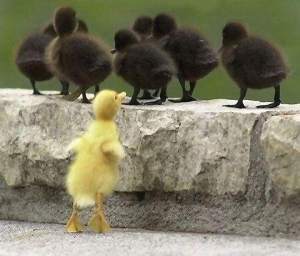
Did you catch Proud and Prejudiced on Channel 4 last night? There aren’t many programmes that touch a nerve, but this sure as hell did! So, I’m putting “Prejudice” in the spotlight.
The programme aimed to show the two extremes of prejudice in Britain – the far-right versus Islamic radicalism. The far-right was represented by the English Defence League’s leader, Tommy Robinson who claimed (to the camera!) that he was proud of multicultural Britain but wouldn’t accept radical Muslims who attacked the country. Meanwhile, Islamic radicalism was represented by Sayful Islam who leads the (now) banned group Muslims Against Crusades. He wants Islam to dominate the world starting with Shariah law in Britain.
If he wants a Muslim state, go live in one! There are dozens of Muslim countries to choose from. I’m proud to live in Britain where I, as a Sikh, share equal privileges with Christians, Jews, Hindus, Buddhists and Muslims (amongst numerous other faiths) to practice my faith. My sister lives in the UAE – a tolerant, multicultural and thriving Muslim country. They don’t impose Shariah on my sister yet she lives in a Muslim nation.
It would be foolish to believe what both men (Tommy and Sayful) were saying to the camera. Behind closed doors, God knows how (further) extremely racist and bigoted they are. I couldn’t see any differences between them or their followers. They both appeared uneducated, hungry for power and attention. I don’t want to live in a society where one particular community is hated nor do I want to live in a society where Shariah law is imposed on me. I’m pretty happy with Britain the way it is if only these fools would shut the hell up and do something more productive with their time than fuel hate!
I appreciate part of what Tommy Robinson was saying about terrorists targeting innocent people. On the contrary, I appreciate Sayful Islam’s conviction about the thousands of innocent killed in the so-called War on Terror. But why must the average Brit who is so caught up in his/her own life with family, kids, bills, financial worries (to name a few!) have to face the brunt of a couple of men who fancy their own voice!
Shut up! If you want to exercise political freedom, which you’re damn lucky to have in a democracy, exert your efforts on action that ends hate and prejudice, not amplify it!
Luton politicians have complained that the programme didn’t truly reflect Luton (where both men are based) but it showed them travelling across the country with their supporters so it’s not just about what happens in Luton. This ignorant, uneducated narrow-mindedness exists across Britain and beyond.
Go to any community, in any city anywhere in the world. They are prejudiced against another community that is somehow different to them. These differences reach far beyond race, faith and caste. Women are unfairly treated, some ethnic groups ridicule darker skin to fair, there are even subdivisions within nationalities or faiths who are against each other. Where do you draw the line?
There is evidence of prejudice in the Neanderthals. The evidence of it amongst us Homosapiens is needless to say. Even some animal species prejudice against others in their race! My point is; there is no start or end to this. But there can be an end to hate mongering, fighting and killing. Live and let live!

